In this edition
- Generational Trauma
- Healthier Summer Eating Habits
- Move Your Way®
- Sunshine Salad Recipe
- SNAP-Ed Nevada
About the Newsletter
June recognizes Post Traumatic Stress Disorder Month, and you will learn how generational trauma affects each of us. Sunshine salad will start your summer off to a healthy and nutritious start. Learn to save money and shop smarter by using ingredients you already have in your kitchen to plan meals.
Generational Trauma
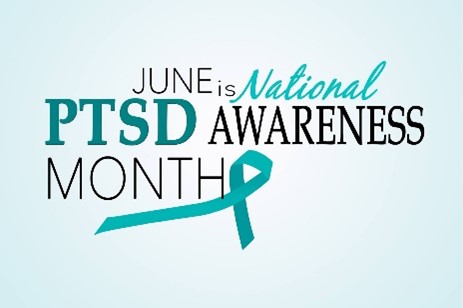
June is National PTSD Awareness Month
To recognize Post Traumatic Stress Disorder Month, we will address how generational trauma affects each generation. Up to 90% of older adults have experienced at least one traumatic event in their lifetime, such as military combat, the unexpected death of someone close, serious illness or injury to self or someone close.
People who have experienced trauma or have been clinically diagnosed with post-traumatic stress disorder (PTSD) have higher rates ofcardiovascular diseases and related risk factors (e.g., high blood pressure, coronary artery disease, high cholesterol),as well as other common medical conditions (e.g., osteoarthritis, diabetes). In addition to PTSD, researchers have found both historical and generational trauma that can affect an individual as well as an entire generation.
The traditionalist (born 1928-1945) lived through the Depression and the post-war era. Economic hardship, widespread unemployment and social upheaval contributed to long-term psychological impacts. Long-term effects included increased rates of anxiety, depression, and a sense of hopelessness. Individuals who lived through the Great Depression often developed frugal habits and a cautious approach to finances that persisted throughout their lives. The experience also shaped many attitudes toward authority, government and risk-taking.
Baby Boomers (born 1946 to 1964) want to live a life focused on material well-being. They had a sense of invulnerability. Prosperity, economic growth and wages were high. However, mental health treatment was still a stigma. And their parents’ historical trauma was likely passed down, with materialism being the main coping mechanism.
Generation X (born 1965-1980) was born in an era of social change and the War on Drugs or “Just Say No” campaign. More moms worked, divorce became more prevalent, and the term “latchkey generation” was coined! Emotional needs were not always met in childhood and became deprioritized in adulthood. Many of this generation’s stressors result from caregiving – both their children as well as aging parents.
The Silicon Valley boom shaped the millennial generation (born 1981 to 1996). This generation is stereotyped as lazy and entitled. They also experience higher rates of suicide and substance abuse than earlier generations. They are ready to go and quick to learn new technologies.
Generation Z (born 1997 to 2012) will forever be shaped by 9/11 and the disasters and traumas seen worldwide on social media. They are digital natives who spend, on average, four hours a day on social media. They are also the most open about traumatic events and mental health, and they aren’t afraid to talk about it.
The good news is that trauma research has grown in recent years, bringing to light several ways to manage treatment, from medications that restore brain chemical imbalances to reducing social isolation, which contributes to feelings of depression and early intervention programs. To learn more about mental health, contact our HOPE Team at hopeteam@unr.edu.
Natalie Mazzullo is healthy aging faculty at University of Nevada, Reno Extension, a unit of the University’s College of Agriculture, Biotechnology & Natural Resources.
Healthier Summer Eating Habits
Smart Shopping and Meal Planning
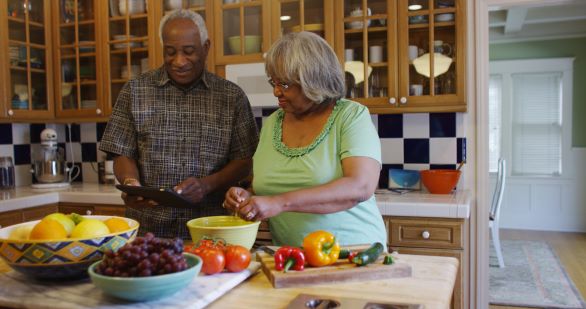
Older Black couple preparing a meal in their kitchen
The start of summer is the perfect time to start healthy habits that are good to you and your wallet. Learning to shop smarter, planning meals carefully, and making use of what you already have at home can help you eat better and waste less. Using these tips can help you to shop smart and eat well every day!
Read more helpful hints on the SNAP-Ed Connection site.
Here are some easy tips to follow:
- Shop your pantry first – Plan meals around items you already have on your shelves, in your refrigerator or freezer. This reduces trips to the store and helps save money.
See what’s on sale – Use phone apps or paper adds to find out what’s on sale at your local markets. Subscribe to email or text messages to receive special offers.
- Use unit pricing – The unit price label provides the cost per ounce or other unit of weight. This allows you to compare similar items with different sized packages.
- Start with a recipe – Visit our SNAP-Ed Connection website for healthy recipes that are budget friendly and great for families or individuals.
- Save on produce in season – Buying fruits and vegetables in season may save money and provide better tasting items.
Move Your Way
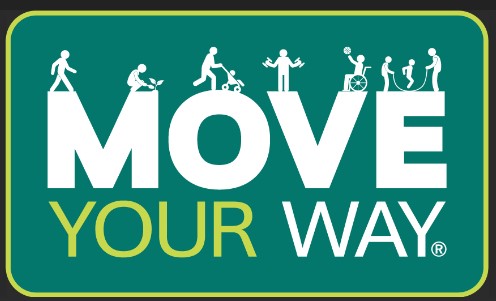
Move Your Way logo
As you get older, being active can help you keep doing the things you love. Learn how to #MoveYourWay with tools and resources from the U.S. Department of Health and Human Services, Office of Diesase Prevention and Health Promotion.
Walk. Run. Dance. Play. What's your move?
Move Your Way®
Sunshine Salad
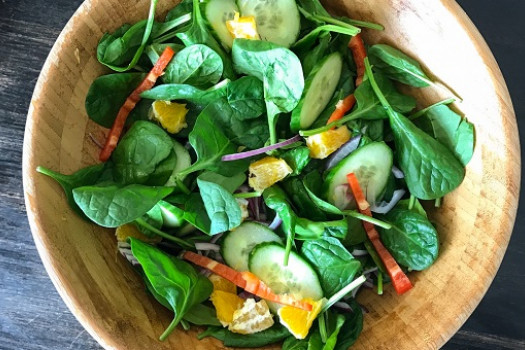
Spinach salad with oranges and other vegetables in a wooden bowl
Oranges help to brighten up this tasty veggie salad. It is quick and easy to make. Top it off with your favorite vinaigrette.
Makes 5 servings.
For nutrition information, please visit Sunshine Salad at USDA’s MyPlate Kitchen.
Ingredients:
- 5 cups spinach leaves (packed, washed, and dried well)
- 1/2 red onion (sliced thin)
- 1/2 red pepper (sliced)
- 1 cucumber (whole, sliced)
- 2 orange (peeled and chopped into bite-size pieces)
- 1/3 cup vinaigrette dressing ("lite", around 15 calories per tablespoon or less)
Directions:
- Toss all ingredients together in a large bowl. Add dressing and toss again. Serve immediately.
Nevada Supplemental Nutrition Access Program-Education (SNAP-Ed)
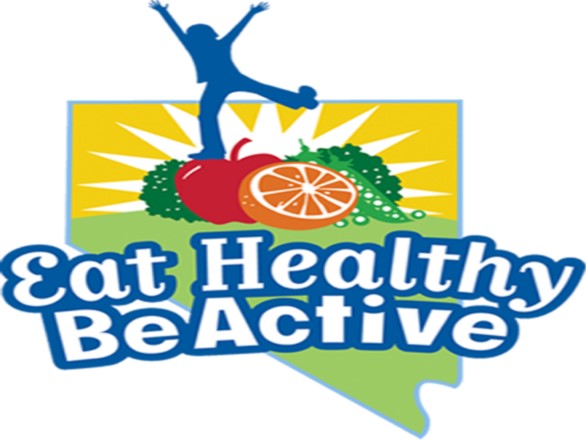
Nevada SNAP-Ed logo
The University of Nevada, Reno Extension is an EEO/AA institution. This material was funded in part by the USDA’s Supplemental Nutrition Assistance Program (SNAP). This institution is an equal opportunity provider.
Nevada SNAP-Ed


